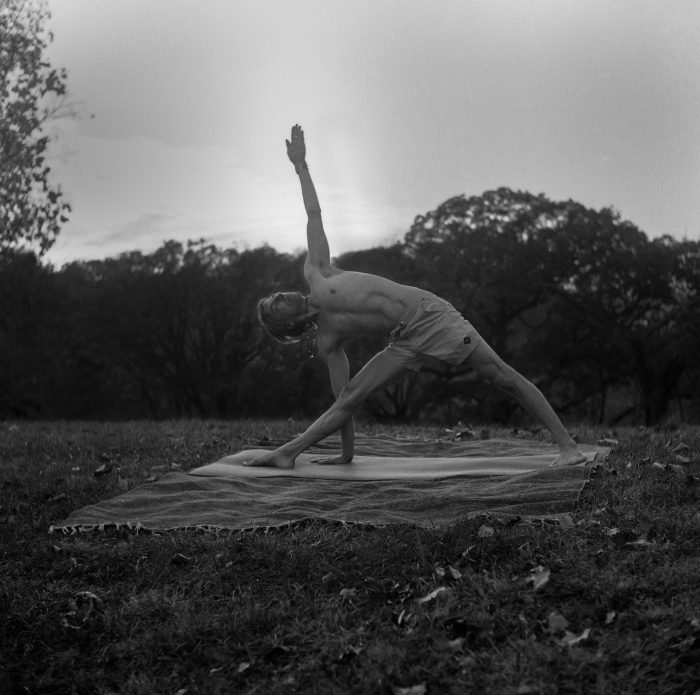In yoga we have an opposite notion or a contrary image about how wisdom takes form within the human mind. Instead of thinking that attaining knowledge is about filling up our minds with learning, facts, information, viewpoints, stances, opinions and such—the yogi aspires to empty out of all thoughts and become ‘void minded’. And yet we don’t necessarily take to championing the void right away. In fact it is common to come to yoga with a preset bias against the concept of emptying out in all its many glorious forms. We are trained to believe that to have an empty mind is to lack intelligence or be stupid and even the word void has negative connotations that we associate with outer space—freezing cold, black, meaningless, purposeless, without goodness, light, beauty, features, vast, unforgiving, emotionless, lifeless, abysmal.
The psychic void that the yogi aspires to is not like the void of outer space. Shunya, Sanskrit for empty, is not to be literally without qualities, and emptying your mind is to not to seek a kind of apathetic, depressed, powerless state where you live without meaning, purpose, goodness, light, or beauty. The psychic void of Shunya comes with a wink—you aspire to empty out of the piles of trash thoughts—and to be without bias, preset ideas, fixed habits or reactions—and yet to be void minded is to know that psychic emptiness has a holy fullness, a sacred completeness—all the goodness of life exists within the embrace of the void—or you know the goodness of your own life and life itself through emptying yourself out of yourself. The wink is that emptiness is not empty—it is pregnant—psychic space that has been cleared out of ordinary thought opens you up to knowing that you are filled to the brim with infinite possibilities for expression, creativity, and goodness. Becoming void minded takes us to the yearning that we each possess to express and to know boundless, limitless freedom—in some form—within ourselves—and also the yearning we possess to see freedom manifested in the world.
To be empty is also simply a way of describing humility—one who is void minded is not puffed or filled up—but aspires to be free or empty of conceit, artifice, pretension, bias, fixed knowing, habit, desire for gain, ambition, judgment, envy, or wrath. In describing the world as void the wise sage lowers herself; she becomes humble, lowly, loses her face, ego, knowledge, importance. The sage remains low and humble so as not to be inadvertently knocked down from a false or unnaturally high place—what is already low does not fall. She loses the need to be or do something meaningful or purposeful and therefore never falls into sorrow or despair from failure to achieve a purpose or find meaning. She lives like there isn’t anything to do at all and yet secretly exclaims Ha!—because there is everything to do in the midst of doing nothing. She acts as if nothing at all matters and yet throws or directs the full power of her being behind every action. By humbling herself and becoming void minded she avoids spreading suffering through emotional, relational, intellectual yo-yoing and rollercoaster riding—she no longer falls into perpetually swinging between being important and unimportant, relevant and irrelevant, successful or a failure, purposeful and purposeless, good and bad, right and wrong, worthy and unworthy, wise and ignorant. There is a glorious middle way between the pairs of opposites that only the void minded can access and know—paramasukha—ultimate spaciousness, ease, agreement, joining, yoga.

 Share on bsky
Share on bsky







Read 0 comments and reply